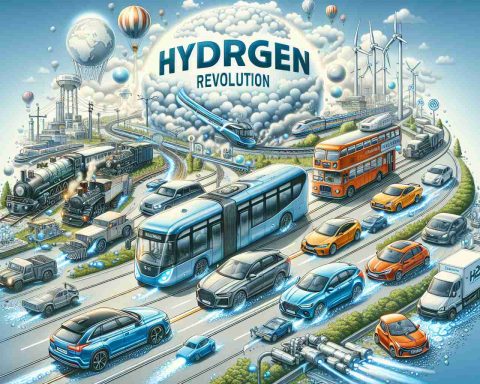Texas is on the brink of an energy revolution, tapping into a natural reservoir that could redefine its energy future: hydrogen. Unlike traditional fossil fuels, hydrogen found naturally beneath Texas soil offers a sustainable energy source with the potential to last for millennia. This discovery is positioning the Lone Star State as a leader in clean energy initiatives.
Exploration of Texas’s natural hydrogen reserves has generated keen interest among energy experts and industry leaders. The presence of this abundant resource could catalyze a shift away from methods that rely heavily on energy and emit greenhouse gases, offering a cleaner alternative with minimal processing requirements compared to electrolysis or steam methane reforming.
This untapped potential could place Texas at the forefront of a renewable energy transformation. As global energy demands evolve, the ability to significantly reduce greenhouse gas emissions while maintaining Texas’s status as a pivotal player in the energy sector could prove pivotal.
However, leveraging this natural hydrogen bounty won’t be without its challenges. Texas must invest in robust infrastructure for extraction, storage, and distribution to harness this resource effectively. This infrastructure is critical to maintaining hydrogen’s viability as a competitive energy source and ensuring its delivery across Texas’s vast landscape.
Technological advancements and regulatory frameworks will be crucial in overcoming these hurdles. By promoting innovative extraction methods and setting environmental standards, Texas has the opportunity to spearhead clean hydrogen technology in the U.S.
The economic prospects are substantial, with potential to create thousands of jobs in the clean energy sector. Collaborative efforts with academic institutions could further advance research, solidifying Texas’s role in the global hydrogen economy and driving progress in hydrogen technologies.
The Hidden Challenges and Debates Behind Texas’s Hydrogen Energy Revolution
The Unseen Evolving Economic Landscape
The burgeoning hydrogen energy sector in Texas is about more than just renewable optimism. While the state stands to gain immensely from this natural hydrogen discovery, the ripple effects of such a transformation reveal a complex economic landscape. Shifting from traditional fossil fuels to hydrogen could potentially devastate current employment in oil and natural gas industries, necessitating significant workforce retraining and education. The question arises: can Texas transform its blue-collar petroleum workforce into green hydrogen experts?
Environmental Concerns: Is Hydrogen Truly “Green”?
While hydrogen offers a cleaner-burning fuel, the extraction process still raises environmental concerns. Critics argue that operations could disturb the ecological balance, potentially contaminating groundwater resources similar to issues observed during oil drilling. Further concerns include methane emissions during extraction – ironically counteracting some of the greenhouse gas reductions. Is Texas prepared to address potential unforeseen ecological impacts?
Community and Cultural Shifts
Perhaps the most intriguing impact is cultural. Texas, a state with deep-rooted identities tied to oil dominance, faces a cultural realignment as it pivots towards green energy. Communities may resist changes that threaten traditional economic systems and cultural norms. For residents whose livelihoods are intertwined with oil, the transition presents a paradox of progress versus preservation. Will these communities embrace or resist the hydrogen wave?
Who Will Control the Narrative?
As Texas harnesses these natural hydrogen resources, a debate emerges over who controls the energy narrative. Traditional energy giants and innovative startups are vying for dominance in this emergent market. Potential monopolization poses risks to fair energy pricing and equitable access. Can Texas ensure a fair competitive landscape and prevent the exploitation of this resource by a few major players?
Intriguing Geographic Mysteries
In a curious twist, the geological formation containing Texas’s hydrogen reserves predates even the earliest known oil formations. These rare “hydrogen traps” boast a geological composition that has intrigued scientists worldwide. Could future findings from these formations offer new insights into Earth’s geological history?
What This Means for Global Relations
Internationally, countries are watching Texas’s hydrogen revolution unfold, potentially setting a benchmark in renewable energy transformation. As the U.S. amplifies its role in global green energy markets, Texas may find itself at the forefront, negotiating foreign investments and collaborations. What geopolitical shifts might arise as nations compete for hydrogen technology leadership?
Conclusion: Watching the Horizon
As Texas stands on the precipice of an energy revolution, the way forward brims with uncertainty and opportunity. With erudite foresight in technological, ecological, and economic planning, Texas could indeed become the “clean hydrogen capital” of the world—if its communities, industry leaders, and policymakers can navigate the complex road forward.
For those interested in the future of hydrogen and sustainable energy advancements, stay informed with reliable updates from sites like U.S. Department of Energy and International Energy Agency.














